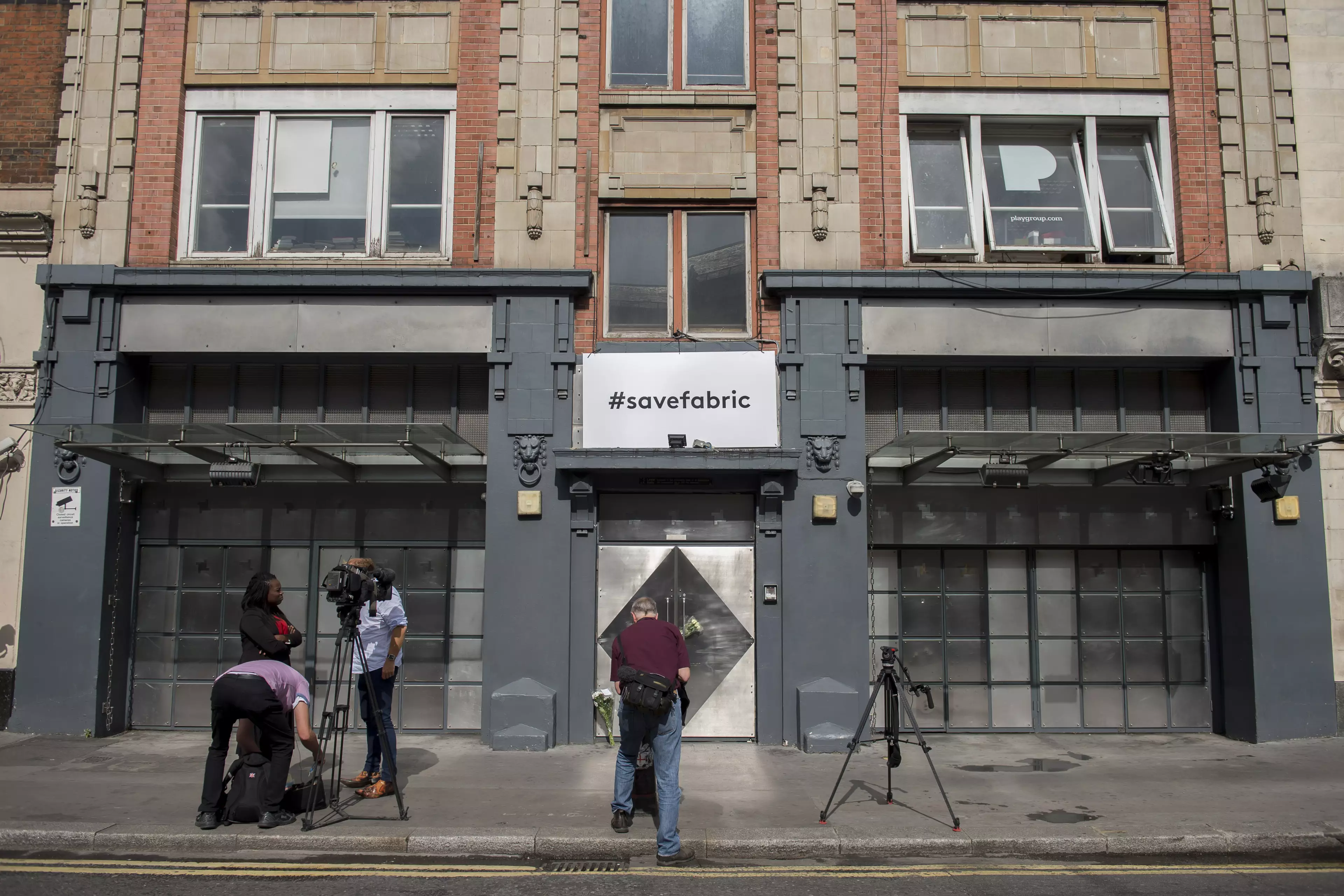
I've never been to Fabric, but it's clear to see from the outpouring on social media that the club was much more to people than just somewhere to get pissed and listen to tunes.
The reponse has shown it was a place for discovering new music and genres, creating memories with your mates, and enjoying life while you're still young enough to go out until 6am in the morning without any consequences.
There might have been drug deaths in the club, but anyone can see that closing a club down does nothing to stop drug use. If people are going to do drugs they are going to do drugs - whether it's in a club or elsewhere.
Tributes left outside Fabric following its closure. Video credit: Newsflare
London has lost 50% of its nightclubs and 40% of its live music venues over the last eight years - a shame for anybody yet to be resigned to weekends watching shit TV in their dressing gown.
A number of people said that that the council's moralisation over clubbing and drug use is older people making judgements on a part of youth culture they've never been a part of and will never understand. Which, in part, it is.
But now new information, uncovered by the Independent, seems to suggest that the closure of Fabric was orchestrated by Islington Council as a way of saving money.
It has been reported that the trigger for Fabric's suspension and subsequent closure was two deaths as a result of drug taking on the premises on June 25 and August 6.
However, the Independent has now reported that documents obtained via a Freedom of Information request show the clubs closure could have been a pre-planned event, orchestrated by a cash-strapped council, using the police as pawns.
The council's official statement regarding the closure lists 11 bullet points - two relating to recent Ecstasy deaths, and eight relating to an undercover police officer's report.
Sending in undercover police is apparently an unusual measure, the Independent says. The original report said: "The general atmosphere of the club was friendly and non-threatening."
Allegedly, there was little direct evidence of drug dealing found by the officer - with evidence instead reportedly relying on descriptions of clubbers 'manifesting symptoms showing that they were (on drugs). This included sweating, glazed red eyes and staring into space'.
If this is the case, the alleged evidence wouldn't have mattered, as The Independent report that the councillors involved had already made up their mind.
Advert
Reported government cuts to councils and police mean that resources are less and less. Islington council has lost half its funding since 2010. A spending review in 2015 confirmed cuts of £70million over the next four years. Islington police, who are partly funded by the council, are reportedly facing similar cuts.
Although Fabric and the night-time economy in the area made money, some of which makes its way back to the council, the Independent reports that the council estimated that policing the club was too expensive, given cuts, so the club was allegedly targeted.
The Met Police issued a statement saying: "Police felt the need to act due to concerns about the safety of those attending the club due to the supply of class A drugs in the venue and the recent deaths of two young men linked to the club."
Islington Council said: "The decision of Islington Council's licensing committee on Fabric's licence was based solely on the evidence, submissions, and representations put before the committee. To suggest anything else is simply wrong. For the avoidance of doubt, Islington Council is not the owner of the building and has no financial interest in the site."
The iconic Hacienda club, in Manchester, became flats for yuppies when it closed - how long until Fabric goes the same way?
Advert
Featured image credit: PA Images
Featured Image Credit: